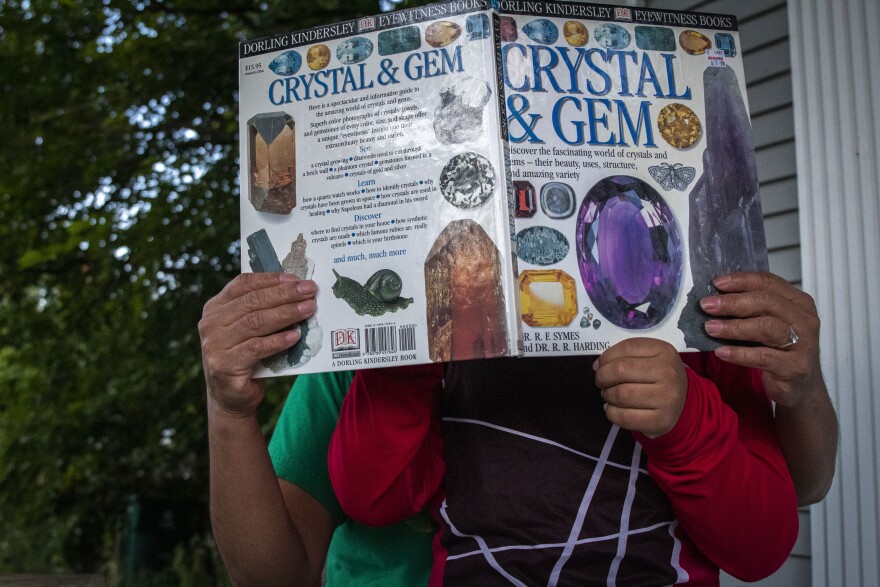An eight-year-old Guatemalan boy is heading into his first day of American school in Cincinnati Monday. José has been in the U.S. since early July after a month's journey and staying in a detention camp.
José's mom Evaline says a gang was extorting her convenience store in Guatemala, which pushed them to flee. WVXU isn't using the family's real names to protect their identity.
"One of the biggest things is making sure they feel comfortable. They have experienced a lot of trauma," says Carmen Hayes, LEAP Academy's English Language Learner teacher. "Recently, I've found that what's going on at the border is really happening to our students."
Hayes says after making sure the student is comfortable, she starts working on basic English, which can be easier depending on the child's ability to read and write in their first language.
Evaline and José left Guatemala in early June and figured out they were coming to Cincinnati while in a detention camp in Mexico. After leaving the camp, Evaline says it took them hours to cross the desert. They came to the Cincinnati area on July 5only knowing a friend-of-a-friend. After living in poor housing conditions, Evaline was forced to relocate again.
A Cincinnati immigrant advocate began looking for someone local who could host Evaline and José. East Price Hill resident Pamela Taylor opened her home to them and has been helping the family get on their feet.
"I worry a lot about the language barriers because he speaks a little bit of English but barely any and he's very shy to talk in English," Taylor says.

José is going to LEAP Academy for third grade, where, according to data from Cincinnati Public Schools, 88.2% of students qualify as English Language Learners (ELL).
At a back to school event Friday, parents and students file into a stuffy gym. Previous students hug and catch up about their summer with old classmates and teachers. Taylor took José to the event to help him ease into the new environment. While there, she spoke with his science and math teacher and learned the teacher doesn’t speak Spanish and says they rely on teachers like Hayes to work with ELL students.
Hayes says teaching students in kindergarten through fifth grade is a challenge. "I'm not always able to give the support the student needs," Hayes says. "That looks like a kid being alone in the classroom with a teacher that doesn't speak Spanish."
She says her workload also includes students that have grown up in the U.S.
At the event on Friday, José sat quietly fidgeting with his kindergarten class ring on his finger and knocking the heels of his feet together. The expression on his face showed he was taking mental notes of his surroundings, hardly missing a beat.
"A student may not even utter a word - not in English, Spanish or whatever their native language is - and a lot of that is because of culture shock," Hayes says.
Later that evening at José's home, he carried himself with ease and a bright smile.
When asked if José liked his old school in Guatemala, his response was "eh, mas o menos," which translates to "uh, more or less."
"They didn't give you anything to eat. But here they give you food," he says. His mom and translator burst into laughter at his response. He says the other difference is that his school in Guatemala was smaller and everyone spoke Spanish.
José says he is excited to learn English and make friends at his new school.
Through a translator, Evaline tells WVXU education is the most important thing for her son. "It's a good thing in and of itself. I don’t have anything else to give to him right now." She says she wants him to surpass her fourth-grade education and become a lawyer.


